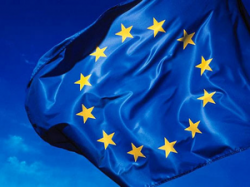European Parliament Clears Tougher Rules to Protect an Open Internet

The European Parliament’s vote today to “end [mobile] roaming charges” by Christmas 2015 and protect open access to the Internet arguably masks the real story, which is that several new amendments have introduced a clear and very specific reference for the “principle of net neutrality” (i.e. treating all Internet traffic as equal).
Previous drafts of the proposed legislation, which still have to be voted on by EU member states before a final agreement is published by the end of 2014, left plenty of wriggle room for mobile operators and fixed line broadband ISPs to tweak the interpretation of what Net Neutrality actually means.
Advertisement
Critics of the proposal, such as the outspoken Open Rights Group, had feared that this would still allow ISPs to “decide what content you can and cannot access” by throttling traffic to the point of making a service unusable or forcibly filtering out (blocking) legal websites and other online services.
Another fear was that online content providers, such as Netflix or perhaps even Skype, could find their traffic throttled unless they agreed to pay a fee to the ISP. On the one hand ISPs would gain a lovely new revenue stream to help keep customer subscription fees low, yet on the other they might risk shooting themselves in the foot by penalising the very content that makes the Internet worth using.
Meanwhile online content providers typically argue that they already pay for their bandwidth and allowing ISPs to throttle a popular service unfairly, unless they paid for the privilege of a faster link to reach the ISP’s subscribers, would open the floodgates to thousands of ISPs making similar demands and potentially bankrupting the service. However the agreed text approves a series of amendments that could prevent all this.
Example Amendment Text
The principle of “net neutrality” means that traffic should be treated equally, without discrimination, restriction or interference, independent of the sender, receiver, type, content, device, service or application. As stated by the European Parliament resolution of 17 November 2011 on the open internet and net neutrality in Europe 2011/2866, the internet’s open character has been a key driver of competitiveness, economic growth, social development and innovation – which has led to spectacular levels of development in online applications, content and services – and thus of growth in the offer of, and demand for, content and services, and has made it a vitally important accelerator in the free circulation of knowledge, ideas and information, including in countries where access to independent media is limited.
Previously the “net neutrality” phrase didn’t even appear in the legislation and now it seems to have been positively defined.
Advertisement
Jim Killock, Executive Director of Open Rights Group, said:
“We’re delighted that the European Parliament has backed an open, free and democratic internet and we hope that the British government does the same. The Regulation means that for the first time net neutrality is properly defined and protected in law, making sure that all internet traffic is treated equally.”
Félix Tréguer, co-Founder of La Quadrature du Net, added:
“Today’s victory on Net neutrality is the most important one for the protection of freedom online in Europe since the rejection of ACTA in July 2012. The EU Parliament made clear that the Internet commons should be free of corporate capture, and remain a space where freedom of communication and innovation can thrive. We warmly thank all organisations, citizens, and members of the EU Parliament who worked to achieve this result.
We should now all remain watchful for the remainder of the procedure, as the text now goes to the EU Council where many national governments will seek to undermine Net neutrality provisions so as to please their homegrown telecom oligopolies. Even though we won today, the fight for the free Internet continues!”
However ISPs are not merely access providers and big providers, such as BT and TalkTalk, have increasingly branched out to offer TV services over the Internet (IPTV). Some of these need to sign content delivery agreements with Rights Holders, much like Sky does when securing deals to air new movies or sports, and it’s important that this flexibility to create new services isn’t inhibited by overly strict rules.
Similarly there’s technically no such thing as true Net Neutrality because in a live network environment the data traffic will always need to be controlled and adjusted (e.g. Traffic Management) to some degree. For example, consumer broadband services are cheap because ISPs share their capacity out between many users. If you wanted a truly uncontended and dedicated connection then you’d need to pay thousands for an equivalent business leased-line with a strong Service Level Agreement (SLA).
The final text could potentially still be changed before the last vote is cast but we now appear to be well on our way to enshrining cheaper calls and the protection of open Internet access into law. Once adopted it may present a problem for some ISPs and mobile providers, particularly those that already impose strict throttles on P2P traffic or VoIP services etc.
Lest we not forget that the new legislation also includes various provisions for easier migration between broadband providers and clearer advertising. But many of those proposals are already being implemented in the UK and so won’t have much of an impact upon this side of the English channel. The few exceptions are..
Advertisement
* A right to terminate any contract after 6 months without penalty with a one-month notice period.
* A requirement for ISPs to offer an E-mail forwarding facility when users switch ISP.
It’s important to note that there is a question over whether the Net Neutrality legislation creates a protection for certain “illegal” content, such as child abuse material. Website blocks ordered by a court, such as against piracy websites, won’t be overturned but the text could benefit from some clarity on the issue of content deemed to be “illegal” (e.g. the IWF doesn’t have a court order for its blocks).
Mark is a professional technology writer, IT consultant and computer engineer from Dorset (England), he also founded ISPreview in 1999 and enjoys analysing the latest telecoms and broadband developments. Find me on X (Twitter), Mastodon, Facebook, BlueSky, Threads.net and Linkedin.
« £775k Brings Superfast Broadband to 700 Extra Buckinghamshire UK Homes






















































Comments are closed